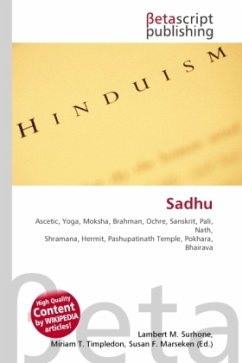High Quality Content by WIKIPEDIA articles! The word Pali itself signifies "line" or "(canonical) text", and this name for the language seems to have its origins in commentarial traditions, wherein the "P i" (in the sense of the line of original text quoted) was distinguished from the commentary or the vernacular following after it on the manuscript page. As such, the name of the language has caused some debate among scholars of all ages; the spelling of the name also varies, being found with both long " " [ ] and short "a" [a], and also with either a retroflex [ ] or non-retroflex [l] "l" sound. To this day, there is no single, standard spelling of the term; all four spellings can be found in textbooks. R.C. Childers translates the word as "series" and states that the language "bears the epithet in consequence of the perfection of its grammatical structure."
Bitte wählen Sie Ihr Anliegen aus.
Rechnungen
Retourenschein anfordern
Bestellstatus
Storno








